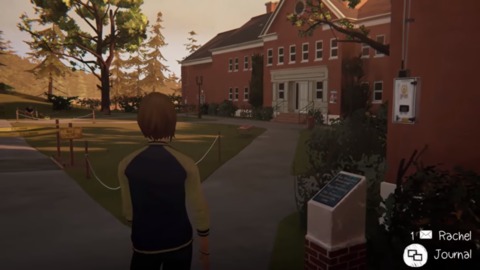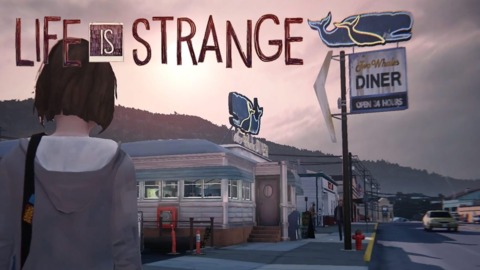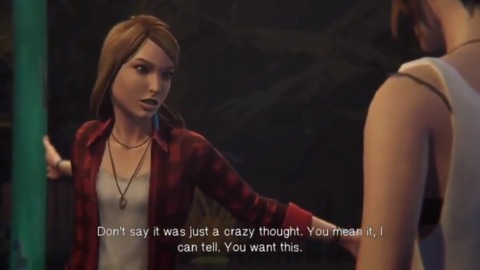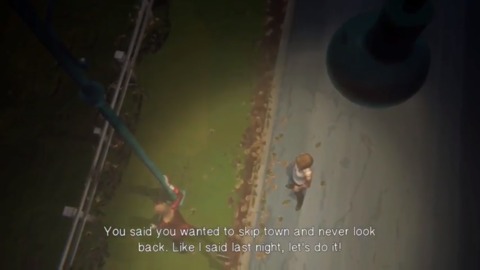Yesterday, I just got done with playing the second episode of Life is Strange: Before the Storm. I absolutely loved the story, atmosphere and the characters, and felt it was one of the most enjoyable video game experiences of the year. In a year packed with so many high quality releases, that's saying something.
Having finished the episode, I started thinking about a question I usually return to when it comes to games that focus on story, more than they do on gameplay: Would this have been better as a movie? Why does it need to be a game? This is a question I sometimes worry about, as I am currently making a game like that too.
In my opinion, a few years back, gamers and developers weren't very comfortable with this idea. You'd hear statements along the lines of - If I want a good story, I'll watch a movie or read a book. Games should focus on gameplay. Many games felt like they needed to justify being a game. You'd have story focused experiences with "gamey" sections forced in. I think that thinking is now beginning to change, and we as players and creators are becoming more comfortable with the idea of these kind of games. "Walking simulators" for instance, are being taken more seriously and have a growing audience.
So fresh off playing the second episode, feeling more than a bit blown away and emotionally moved, I asked myself - What if this was just an animated film? What more can a video game like this offer that movies can't, when it comes to story telling? These are the aspects that jumped out at me in response, and I felt colored my experience of playing the story the most:
Pace:
When you're in control of a character in a game, you decide when to hit the next trigger to proceed the story. It may sound like there's not much in that, but the pace at which you play a game is varies with each player, and that makes the story more personal to each player. For example, when Chloe is in the area outside the dorms, you can choose to talk to everyone, interact with every single object, stare at random spots, listen to the atmospheric sounds, and take it slow. Or you could skip some interactions, rush through and focus on the objective.

Being in a location for a certain amount of time, you allow its atmosphere to sink in. The place becomes more real. And if you rush through, that's still a decision that you made as someone that exists in that world. The memory of having made that choice is stronger than watching an actor take you through the story at a fixed pace.
Once you move on from that location to later sections of the game, the previous location feels more like a real place you had been to, and inhabited for as long as you wanted. The later sections feel like they're built upon that particular amount of time that you chose to take before reaching this point. It stacks up, and affects the overall experience.
Immersion:
This is closely related to what I talked about earlier. When a game is able to sell you the idea that the world you're walking around in actually exists, when everything within it feels consistent to its world, then the story that you experience in it has the potential to affect you much more than in a movie. Why? Because if the world is (almost) real, and you exist within it, then the character's story can almost become your own. Those events can feel like they're happening to you, which is huge.
What makes a world atmospheric and immersive? For me, it depends on the amount of detail in that world, and the gaps that are left in between. Filling it with a specific mood, weather, time of the day (rain, associated sounds etc) lends to the atmosphere. A table in a kitchen littered with small objects (pencils, condiments or just random "stuff") makes the world feel lived in, as if someone had occupied that space before you. In a game you can stare at, examine and interact with these objects, and that places you firmly within this game world.
Getting a little off track: I also like catching glimpses of "incomplete" edges of the world. For instance, I'd enjoy looking at windows lit from within in buildings in Sleeping Dogs, and wondering what life exists within it. The answer would be - nothing, the buildings are hollow. But it's great when your brain begins to fill in the gaps. What you see gets the chance to become a world that exists partially in your mind. The game and the hardware that it's running on are limited, but your mind is not. This is where I feel sometimes (emphasis on some) newer open world games lose out. It's like putting the floodlights on and exposing the fact that it's a game world, where you can see the systems interconnecting and working with each other, responding to the player.

As an example for worlds with incomplete edges though, the diner in Life is Strange comes to mind. You can see outside the diner through its windows, and walk around outside on the streets a bit, but the scenery extends beyond where your character can go. You can see some of it, but you don't exactly know what lies beyond. It's probably a whole world out there right? There's no chance of going there, being proven wrong and having that illusion broken.
Choices:
This is the big one, isn't it? The biggest weapon in video games' arsenal when it comes to story telling. Allowing the player to choose how the story itself proceeds, however small the decision and it's impact maybe, helps invest the player much more deeply into the story. A NPC's reaction to your character might differ based on something you did earlier, and it might just be a shift in tone with which the NPC talks to you, or a few different lines of dialogue, but you caused it. The NPC might compliment your character because you chose to do or say something earlier, and that compliment is also meant for you, the player - causing you in turn to feel flattered due to the compliment as well. The character's reaction towards your player also mirrors how that character feels towards you, and that's something no other medium can do - allow characters to interact with its audience at that level. In a movie, you may feel happy for the protagonist, but that's about it. Here, you can actually have your own feelings and reactions involved. You're a part of it.
Making choices extends far beyond emotions and characters of course, it can alter the plot and bend the story. In Mass Effect 2, you might see characters dying towards the end because of what you did or didn't do. That's your story. I loved the epilogue in Dragon Age Origins, seeing how things turned out for all the characters due to my decisions. My friend hated his ending, his character sacrificed himself and stuff got dark for the other characters too. But that was his story, and it affected him.


In a way, everything I've talked about here has been circling around the same thing: feeling like you're a part of the world that the story is set in. Of removing a layer of obstruction that stands between the audience and the story, being able to convince the audience that the story is about them, for them, that this is real. The story is real, and it's yours. You know how there are studies that visualizing yourself running a race stimulates the same parts of your brain as those that are activated when you actually run one? Maybe it's got something to do with that too, your brain is in charge (even when that's just "walking") and the story feels that much more real. Just being in charge of you character, exploring the space and time of the story, gives the story greater power to move you.
There's huge potential still left to explore when it comes to stories in games, and a lot of it will rely on how technology evolves and how developers use that to create more convincing worlds and illusions. VR might be big for this reason.
I hope all of this wasn't too vague or pointless, and maybe I'll understand my own points better with time. If you're interested in reading more stuff like this, head over here, where I plan to continue discussing topics like these and where you can also follow the development of my own game :)
Thanks for reading!
Log in to comment